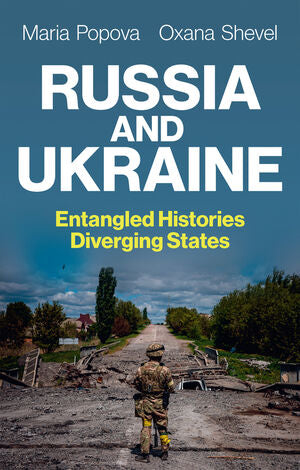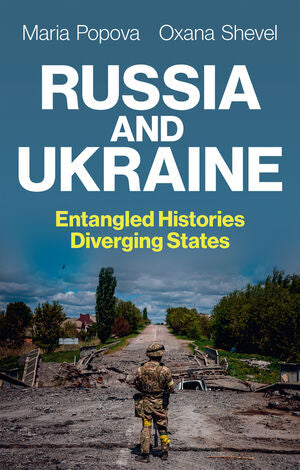Russia and Ukraine: Entangled Histories, Diverging States by Maria Popova and Oxana Shevel
“There is a flood of books on the Russo-Ukrainian war written by overnight experts. This book is different. For anyone who wants to understand the origins of the largest military conflict in Europe since World War II this book is a must-read” - Serhii Plokhy, Professor of Ukrainian history at Harvard University, and Director of the Harvard Ukrainian Research Institute
In February 2022, Russian missiles rained on Ukrainian cities, and tanks rolled towards Kyiv to end Ukrainian independent statehood. President Zelensky declined a Western evacuation offer and Ukrainians rallied to defend their country. What are the roots of this war, which has upended the international legal order and brought back the spectre of nuclear escalation? How did these supposedly “brotherly peoples” become each other’s worst nightmare?
In Russia and Ukraine: Entangled Histories, Diverging States, Maria Popova and Oxana Shevel explain how since 1991 Russia and Ukraine diverged politically, ending up on a collision course. Russia slid back into authoritarianism and imperialism, while Ukraine consolidated a competitive political system and pro-European identity. As Ukraine built a democratic nation-state, Russia refused to accept it and came to see it as an “anti-Russia” project. After political and economic pressure proved ineffective, and even counterproductive, Putin went to war to force Ukraine back into the fold of the “Russian world.” Ukraine resisted, determined to pursue European integration as a sovereign state. These irreconcilable goals, rather than geopolitical wrangling between Russia and the West over NATO expansion, are – the authors argue – essential to understanding Russia’s war on Ukraine.
Paperback
Share

You Also Viewed

Russia and Ukraine: Entangled Histori...
